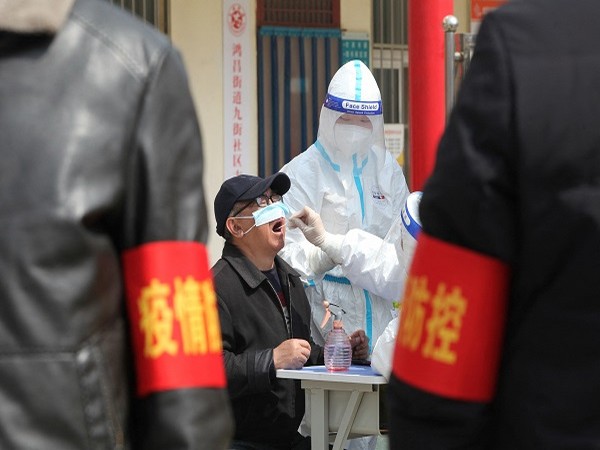

Chinese authorities locked down a major university in Beijing on Wednesday after finding one COVID-19 case as they stick to a “zero-COVID” approach despite growing public discontent.
Peking University students and faculty were not allowed to leave the grounds unless necessary and classes were moved online on one campus through Friday, a university notice said.
Beijing reported more than 350 new cases in the latest 24-hour period, a small fraction of its 21-million population but enough to trigger localized lockdowns and quarantines under China’s “zero-COVID” strategy. Nationwide, China reported about 20,000 cases, up from about 8,000 a week ago.
Authorities are steering away from citywide lockdowns to try to minimize the impact on freedom of movement and a sagging economy. They want to avoid a repeat of the Shanghai lockdown earlier this year that paralyzed shipping and prompted neighborhood protests. Revised national guidelines issued last week called on local governments to follow a targeted and scientific approach that avoids unnecessary measures.
That still locks down buildings and sometimes wider areas when cases are found. Protests broke out in the southern city of Guangzhou earlier this week in a densely built area that is home to migrant workers in the clothing industry. Videos posted online showed crowds pulling down barriers, though what exactly upset them was unclear.
Guangzhou, an industrial export hub near Hong Kong, reported more than 6,000 new cases in what is the nation’s largest ongoing outbreak. Other cities with major outbreaks include Chongqing in the southwest, Zhengzhou in Henan province and Hohhot, the capital of the Inner Mongolia region in the north.
In Zhengzhou late last month, workers fled their dormitories at a sprawling iPhone factory, some climbing over fences to get out. Apple subsequently warned that customers would face delays in deliveries of iPhone14 Pro models.
Chinese officials and state media have stressed that the government is fine-tuning but not abandoning what it calls a “dynamic” zero-COVID policy, after rumors of an easing sparked a stock market rally earlier this month.